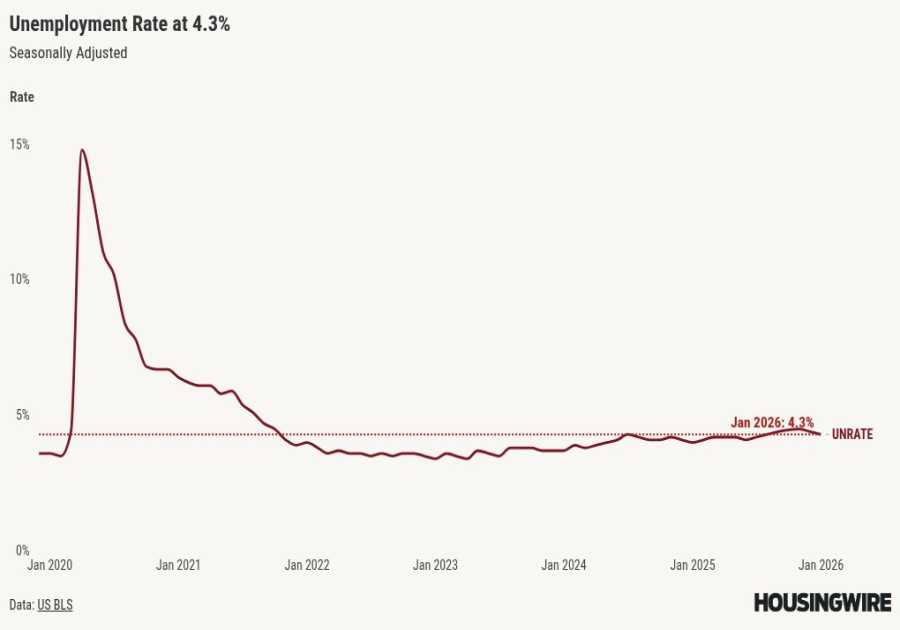As a prospective home buyer, the open house stage of shopping is usually the most fun. You get to tour a bunch of places and envision your life in them, there’s no paperwork, and a bad inspection hasn’t yet brought your dreams crashing down to earth.
This air of optimism is exactly why it’s so important to keep your wits about you during an open house. Some red flags announce themselves the minute you walk through the door (or even before). Here are five to keep top of mind.
An unusual viewing schedule
Open houses are typically on the weekends, and for good reason: Saturdays and Sundays are when most people have some free time. If a house is only open for viewings on, like, Tuesdays from 10 am to noon, something is probably up. Maybe something extremely noisy or otherwise unpleasant goes on during the usual viewing times, and the seller is hoping you’ll like the house enough to buy it without asking what happens on the weekends. You should absolutely ask, by the way, and if the realtor’s answers don’t do it for you, try to scope out the neighborhood on the weekend yourself.
An overwhelming number of candles or lots of potpourri or air fresheners
Taking care to make a house smell nice is one thing, but if you walk in and are immediately assaulted with multiple different scents, it could mean that there’s a terrible stink the realtor wants to cover up. This also applies to individual rooms, especially those less susceptible to weird smells, like bedrooms, living rooms, and offices: If all the candles and Febreze are in one room, you have to wonder what they don’t want you to smell.
Of course, bad smells don’t necessarily point to dealbreaker issues like mold, water and smoke damage, or a crawlspace full of skunks. It’s possible that there was recently something gnarly in the fridge you’re planning to replace anyways. But the nose knows as the saying goes, so always trust yours. (And if your sense of smell isn’t too great, bring along someone with a more sensitive sniffer.)
Off-limits areas
The whole point of an open house is to see the entire property so you can decide just how interested you are in buying it. If certain areas are closed off during viewings, that’s a very bad sign. While it’s possible that the sellers are just using a random closet as short-term storage, it’s also possible that off-limits areas are someone’s idea of a brilliant plan to hide serious safety risks.
Suspicious décor
Realtors put a lot of time and effort into decorating and staging properties for sale. Sometimes they do a meticulous job, but sometimes their efforts are on par with the infamous “landlord special” school of remodeling: Structural issues and visible damage cease to exist the second you paint over them. Here are some common décor quirks to keep an eye out for:
- Fresh paint: Nobody wants to sell a house with chipped, peeling paint, but a fresh coat can hide a ton of useful information from buyers. Are there random patches of fresh paint, or have only some rooms been recently repainted? You might be looking at a hasty attempt to cover up mold or water damage. Can you make out the outline of a piece of printer paper on a freshly-painted wall? It’s probably there to hide a hole the agent is hoping you won’t notice.
- Art hung at strange heights: A gallery wall is one thing, but a random assortment of art hung in a haphazard fashion could be hiding cracks or other issues with the walls. Don’t be afraid to peek behind them to check.
- Impractical furniture placement: Who puts a couch smackdab in the middle of the living room or an easy chair in front of the bedroom closet? Someone with something to hide, usually some kind of floor damage.
No railings on the stairs
This is a highly specific red flag, but if you’re planning to buy a house with a federally insured mortgage—which includes Federal Housing Administration (FHA) loans and Veterans Affairs (VA) loans—the property has to pass certain safety standards in order for your mortgage to make it through underwriting. One of the easiest issues to spot at an open house is a lack of handrails on the stairs, which the FHA and VA require on every staircase, interior or exterior. (This includes decks, too.) It’s a common enough issue that it frequently pops up on the /r/RealEstate subreddit, sometimes even for people pursuing conventional mortgages. The next time you tour a house, keep your eyes peeled for railing-less stairs—and make a note to get the sellers to install them so you don’t have to.
This article was written by A.A. Newton from Lifehacker and was legally licensed through the Industry Dive Content Marketplace. Please direct all licensing questions to [email protected].
------------Read More
By: admin
Title: Beware These Red Flags at Your Next Open House
Sourced From: www.pncrealestatenewsfeed.com/beware-these-red-flags-at-your-next-open-house/
Published Date: Mon, 23 Jan 2023 16:00:15 +0000
.png)





